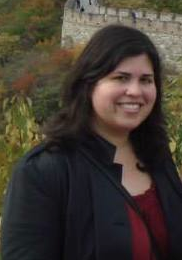 This month’s Industry Insider interview is with literary agent Alyssa Eisner Henkin, Senior Vice President of the Trident Media Group. Her Twitter bio adds these two terrific bio facts: “Lemonade-Maker and Literary Cheerleader.”
This month’s Industry Insider interview is with literary agent Alyssa Eisner Henkin, Senior Vice President of the Trident Media Group. Her Twitter bio adds these two terrific bio facts: “Lemonade-Maker and Literary Cheerleader.”
While that’s nearly enough useful bio material to set up a good interview, OPB underpromises and overdelivers, so I’ll also note that Alyssa loves the movie Steel Magnolias, the TV show Mad Men, and Beverly Cleary. Plus, like so many people with fine taste, she’s quite the fan of Anne of Green Gables and she adores Bollywood movies.
With that, let’s proceed to the interview!
Agency website: https://www.tridentmediagroup.com/agents/alyssa-eisner-henkin/
Twitter: https://twitter.com/AgentHenkin
Manuscript Wish List: http://www.manuscriptwishlist.com/mswl-post/alyssa-eisner-henkin/
RVC: Rumor has it that you were captured on video at age six, sharing your dream about having a particularly bookish future.
AH: Yes, indeed. I remember also visiting NYC at the age of six and just feeling certain I would live and or work there one day.
RVC: Has it turned out to be all that your six-year-old self imagined?
AH: Yes. I’ve got to meet and see quite a few celebrities on the job and I’ve had my fair share of power lunches both in NY and in LA. But while it might have been the surface glitter of the publishing/film world that seemed cool when I started, what I’ve come to enjoy most about my work are the quiet moments, usually at my home office (in PA!), discovering a brilliant new voice in the slush pile or having a good heart to heart with a current client.
RVC: While you clearly have a love for middle grade stories, what draws you to picture books?
AH: I love humor, and biographies, and I adore a great rhyme à la Iggy Peck, Architect. I’m also a fan of picture books that do something totally different as in The Scrambled States of America.
RVC: What do picture books do more effectively than MG and YA?
 AH: They are concise and informative, so you can learn a lot in a picture book biography without needing to read 500 pages. I think a culmination in a picture book can be so gratifying too when done with relatively few words and the perfect image that just kind of says it all. I shared Wemberly Worried recently with my soon-to-be five-year-old son, and that moment when the two shy little kids in stripes meet is just so rewarding!
AH: They are concise and informative, so you can learn a lot in a picture book biography without needing to read 500 pages. I think a culmination in a picture book can be so gratifying too when done with relatively few words and the perfect image that just kind of says it all. I shared Wemberly Worried recently with my soon-to-be five-year-old son, and that moment when the two shy little kids in stripes meet is just so rewarding!
RVC: Let’s talk about your agency. It strikes me that Trident is more committed than some to securing foreign rights sales for your clients. Why is that part of your mission?
AH: Trident devotes a lot of resources to its full-service foreign rights department. Many agencies use co-agents in major markets so that their bestselling titles are competing with other agencies’ bestselling titles, so we are so fortunate to have a dedicated rights team that sells only Trident titles and attends 3 international books fairs every year. We’ve found that making foreign sales for our clients is great from a financial perspective because a foreign sale is like “found money.” The author does not need to do anything other than approve the deal and the jacket. The author does not pay for translation costs, but they are compensated for this book to exist in a whole other language/territory.
Also, sometimes books that are moderately successful in the United States can be bestsellers abroad. We have even had clients create special editions just for certain markets if they have a huge following.
RVC: In other interviews, you’ve called yourself an entrepreneur. What does that mean to you, and how does that play out in your role as a literary agent?
AH: Early on in my career when I was still an editor, I realized that sitting in meetings all day and making decisions by committee was not how I wanted to spend my life. I also did not want to be typecast as doing just one kind of book. As an entrepreneurial agent, I get to have my hands and mind in as many projects as I can manage. I love the breadth and diversity of my list and the range of jobs that abound. On any given day, I can be advocating for my clients in myriad ways, from negotiating film rights, to going out on submission, to advocating for an author tour. I also like to approach individuals and brands that have not had books before, but who I think should be in the book business.
I also have a soft spot for sleeper books that exceed expectations and backlist for a long time! There’s nothing I love more than a scrappy story that defies and surpasses everyone’s expectations of what sells. Having a back-end source of revenue is every entrepreneur’s dream!
RVC: More and more aspiring picture book writers read the OPB interviews, so let’s give them a hand here. Imagine a picture book writer who’s thinking of submitting to you. What are three picture books you’d love for them to read that might offer a good sense of the type of PB you appreciate/prefer?
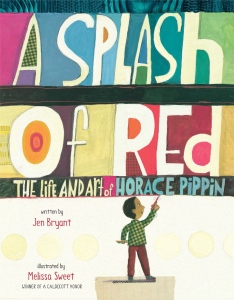 AH: Rosie Revere, Engineer, A Splash of Red (by my client Jen Bryant), and The Day the Crayons Quit. I’m not usually one for really spare language…I like a rich and funny story, and if there’s a feminist empowerment or humor bent, then all the better!
AH: Rosie Revere, Engineer, A Splash of Red (by my client Jen Bryant), and The Day the Crayons Quit. I’m not usually one for really spare language…I like a rich and funny story, and if there’s a feminist empowerment or humor bent, then all the better!
RVC: And one more thing for those aspiring writers, please. What are your feelings about art notes from text-only writers?
AH: I would try to be judicious and not include too many art notes since we want the text to stand on its own. That said, I think a few well-chosen art notes can work.
![This Is MY Room!: (No Tigers Allowed) by [Jacobson, Jennifer Richard]](https://images-na.ssl-images-amazon.com/images/I/51VZYnmBZ-L._SX260_.jpg) RVC: A month or so back saw the publication of This is MY Room! (No Tigers Allowed), a picture book by your client Jennifer Richard Jacobson. Please share your process of preparing a manuscript for submission. Are you super hands-on? Editorial? More focused on marketing angles? Do you see early drafts or is what your clients send you a “final”?
RVC: A month or so back saw the publication of This is MY Room! (No Tigers Allowed), a picture book by your client Jennifer Richard Jacobson. Please share your process of preparing a manuscript for submission. Are you super hands-on? Editorial? More focused on marketing angles? Do you see early drafts or is what your clients send you a “final”?
AH: When a client has a new picture book manuscript, we usually do a few rounds of text revisions before I am ready to start creating the pitch letter and the list of editors who I plan to pitch. In the pitch letter, I always highlight what’s unique about this book and also WHERE I see it sitting in the market. Some books are more gift-oriented and some are more school and library-oriented with backlist potential. I know I’ve done my job well when I recognize bits of my pitch letter in the flap copy for the book when it gets published.
Once a book is sold to an editor, I don’t usually do much of the editorial work since I think it’s important not to have too many cooks in the kitchen. That said, I always read the revisions and weigh in on artists and jacket and title and, of course, the marketing. Since my job is to sell the next book and the one after that, I always like the current book to be so successful that it makes subsequent sales that much easier.
RVC: Since I run the creative writing program at Ringling College of Art and Design, I semi-frequently get asked questions about elephants/the circus/clown college, all of which have as much to do with my college as bicycles do to fish.
So, I have to ask—how many questions/jokes/comments do YOU hear about Trident sugarless gum and/or that fifth dentist who just won’t cave?
AH: So cool about Ringing College! Believe it or not, I’ve never gotten a single remark about Trident gum, but I do remember those commercials quite vividly from my childhood! These days, Trident Media Group is also branding itself as TMG, so maybe other folks noted the gum thing? 😊
RVC: Okay. It’s time for … THE LIGHTNING ROUND! Zip-zappy questions and electrifyingly quick answers, please. Ready?
AH: Ready!
RVC: If I were a character on Downton Abbey, I’d be …
AH: The Dowager, without a doubt!
RVC: #1 hot dog condiment?
AH: Mustard. Never ketchup!
RVC: Which deceased writer would you most love to have shadowed for a full workday?
AH: Edith Wharton.
RVC: What project—picture book or otherwise—are you most excited about right now?
AH: I hate to play favorites among clients, so I’m going to link into the wonderful array of books I have coming out this year on my web page. Short answer, excited about ALL OF THEM!
https://www.tridentmediagroup.com/agents/alyssa-eisner-henkin/
RVC: Best recent picture book with interactive family-bonding potential baked right into its literary DNA?
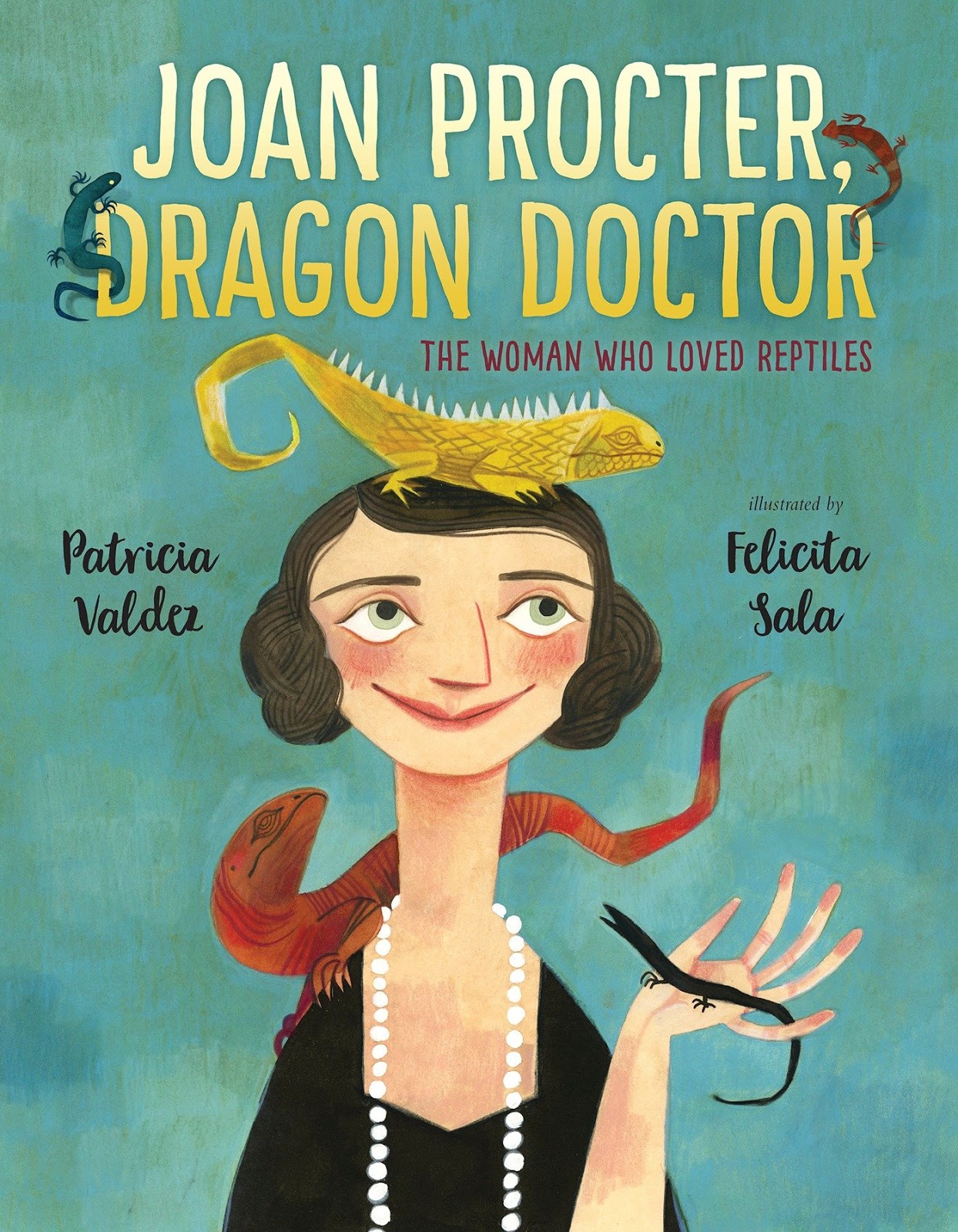 AH: This is MY Room!, Pirates Don’t Go to Kindergarten!, and Joan Proctor, Dragon Doctor, because we are a big history/science-loving family!
AH: This is MY Room!, Pirates Don’t Go to Kindergarten!, and Joan Proctor, Dragon Doctor, because we are a big history/science-loving family!
RVC: Three words that describe your agenting philosophy.
AH: Passion. Persist. Visionary.
RVC: Thanks so much, Alyssa! (And thanks as well to Alice, your on-the-ball assistant, for helping pull this all together.)


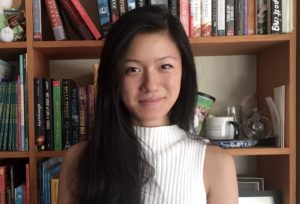 This month’s Industry Insider interview is with Wendi Gu of Janklow
This month’s Industry Insider interview is with Wendi Gu of Janklow 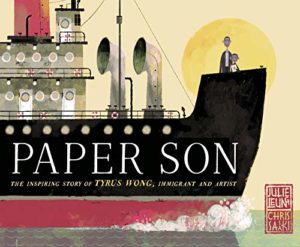
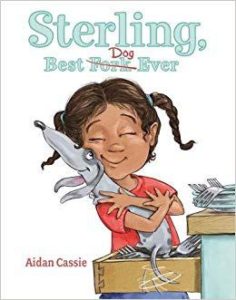
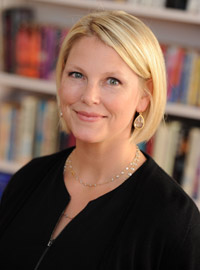 Elizabeth started at Curtis Brown Ltd. almost 20 years ago as an assistant to the legendary
Elizabeth started at Curtis Brown Ltd. almost 20 years ago as an assistant to the legendary 